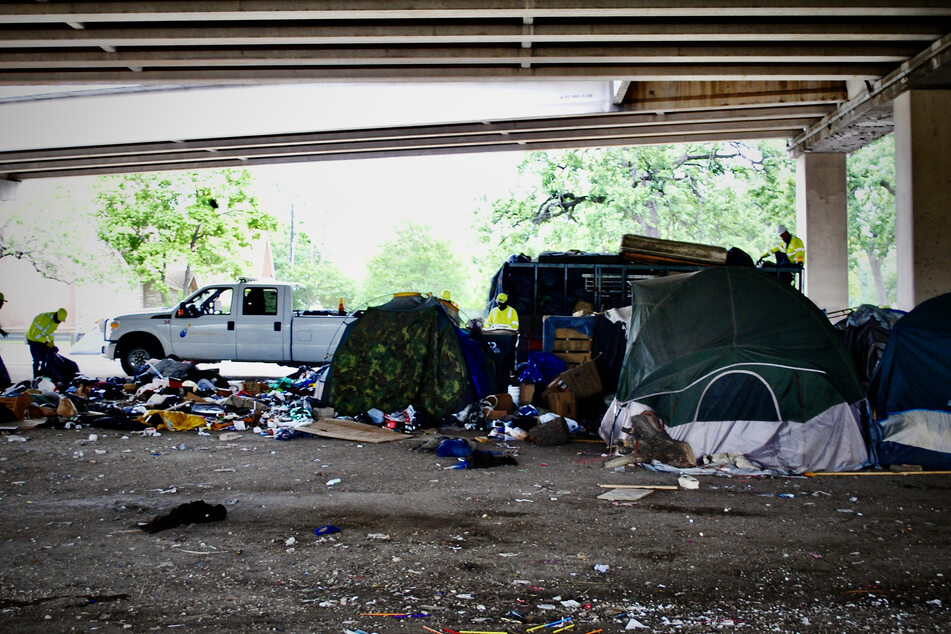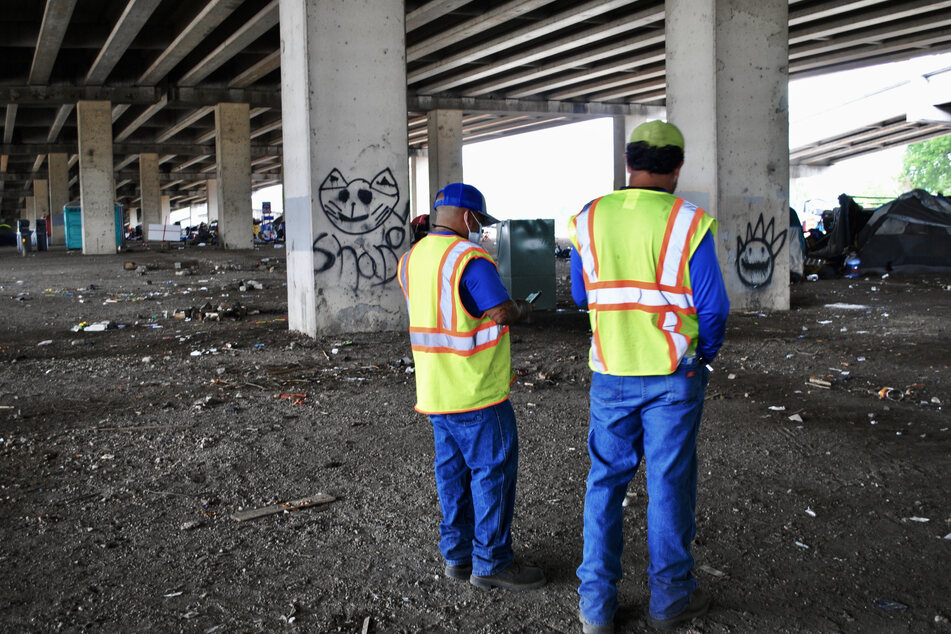Clean-up workers sound off as Austin’s homeless camping ban takes effect
Austin, Texas – Residents in the city of Austin voted on May 1 in favor of reinstating the public camping ban, which took effect on Tuesday. But city clean-up workers aren't so sure it's a solution.

The clean-up process for encampments across the city has officially begun, yet the question of where those experiencing homelessness will go for the long haul remains unanswered.
While 57% of voters opted to reinstate the ban on public camping, some members of the community don't see this as a viable solution for the homelessness crisis, or even one at all.
Clean-up crews arrived at a large encampment under I-35 near 41st street on Tuesday morning with trailers, moving trucks, and numerous city employees to start the process.
Even though they were doing the dirty work, some city workers didn't entirely agree with the actions taking place.
"It's a balancing act no one's figured out," said Melton Baladez, a city worker tasked with the clean-up process of campsites.
One main issue residents had with the sites was the disorganized and trash-filled look and smell of them.
Although those living in various encampments around the city were provided with resources like bathrooms, showers, recycling bins, and trash bins, the city's efforts went seemingly unnoticed.
Searching for a solution through trial and error

After the ban was initially lifted, sites soon began to stack up with trash, abandoned tents, and the remains of various belongings like grills, torched mattresses, and a slew of clothing items.
Now, it's up to clean-up crews to restore areas that were taken over by tents, and it's not a pretty job.
Baladez recounted, "We did a clean-up of an abandoned tent that was just full of rats – maybe 200.”
If allowing the homeless to set up shop with tents across the city for shelter and safety wasn't a viable option, will pushing them out be the solution?
There's no long term outreach plan for those being forced out of the campsites they've called home for over a year, but Baladez did note there's a short-term goal: to get them into actual housing.
"There are places set up for these people who live in encampments to go, and there’s a lot of community outreach here to help these people."
Enforcement could be tricky
According to the City of Austin website, the reinstatement of Proposition B bans sitting or laying on a public sidewalk, camping in a non-designated area, panhandling between 7:00 PM and 7:00 AM, and aggressive solicitation.
During phase one of the reinstatement, local law enforcement officers will solely provide outreach along with verbal warnings to those who don't comply for the first 30 days.
There has been much debate on how the homelessness issue should be addressed and tackled, creating muddy waters with no solutions.
Cover photo: Taylor Kamnetz

